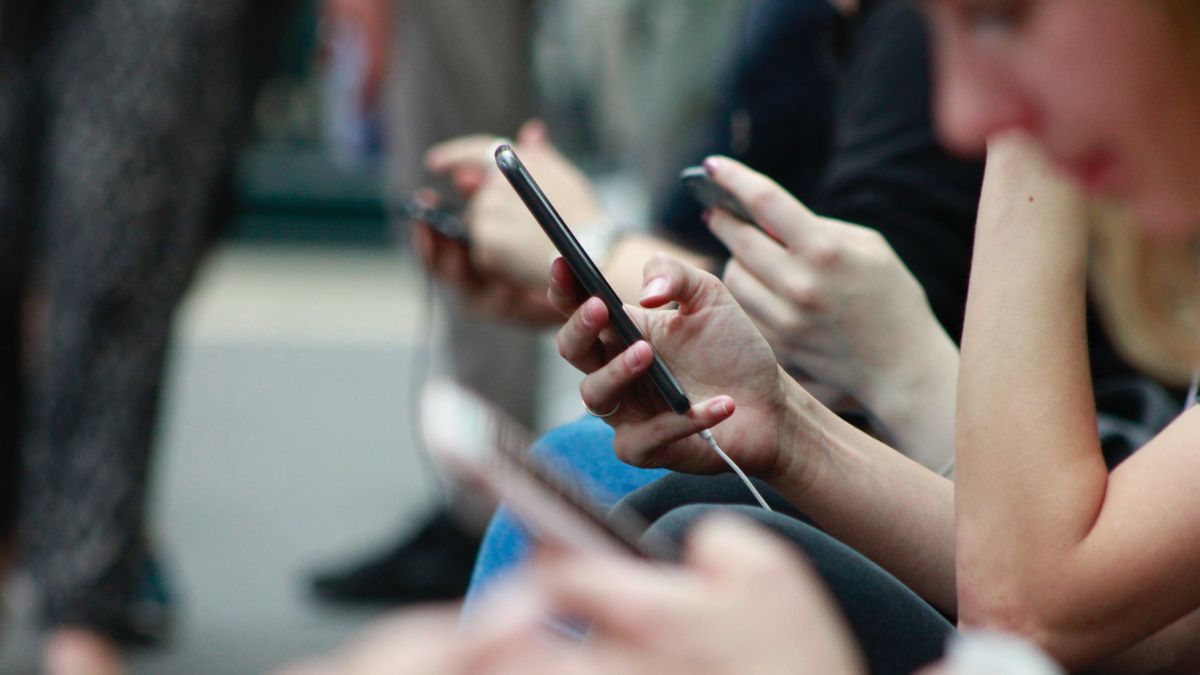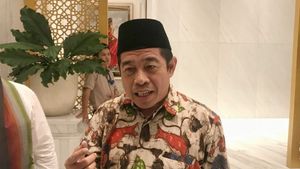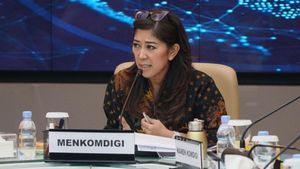JAKARTA - The government has begun to open options to revise Law Number 19 Year 2016 regarding amendments to Law Number 11 Year 2008 regarding Electronic Information and Transactions (ITE). This is because this law is considered to contain catchall articles that are prone to be used as a tool to criminalize opinions on social media.
The discourse on the revision of the ITE Law was raised by President Joko Widodo. He admitted that he would ask the DPR to improve the law if its implementation did not provide a sense of justice.
"The initial spirit of the ITE Law is to keep Indonesia's digital space clean, healthy, ethical, and productive. If its implementation creates a sense of injustice, then this law needs to be revised. Remove the multi-interpretive catchall articles that are easy to be interpreted unilaterally," Jokowi tweeted on his official Twitter account, Tuesday, February 16.
Jokowi also asked the police to formulate rules for interpreting articles in the ITE Law to make it clearer. The National Police is asked by Jokowi to be more selective in handling cases of the ITE Law.
The initial spirit of the ITE Law was to keep Indonesia's digital space clean, healthy, ethical, and productive. If its implementation creates a sense of injustice, then this law needs to be revised. Remove the catchall articles that have multiple interpretations, that are easy to be interpreted unilaterally.
— Joko Widodo (@jokowi) February 16, 2021
On the other hand, Jokowi previously also asked the public to be more active in conveying criticism and input on the government's works. At the same time, he also instructed public service providers to continue to improve their performance.
The public must be more active in conveying criticism, input, or potential maladministration. And public service providers must also continue to improve their efforts for improvements," said Jokowi at the launching of the 2020 Ombudsman Annual Report.
Of course, Jokowi's good spirit deserves to be appreciated. Given a number of legal protections that have the potential to silence critical public spirits, that's about the unrest conveyed by the Indonesian public on Twitter.
This is because the ITE Law has been seen as a trap from the spirit of freedom of expression. So many criticisms or differences of opinion have led to criminalization. The weapon, of course, the ITE Law.
"Since the beginning, on various occasions, I have always said that Article 27 Paragraph 3 and Article 28 Paragraph 2 of the ITE Law should be repealed," said Criminal Law Expert at Trisakti University Jakarta (Usakti), Abdul Fickar Hadjar in his short message to VOI.
Fickar said the ITE Law was made with the spirit to regulate business and commerce via the internet (online), so it is not suitable if the ITE Law then regulates defamation or hate speech that causes enmity between ethnicities, religions, races, and intergroup.
"Business (buying and selling) does not recognize religion or ethnicity. In fact, Article 28 paragraph (2) of the ITE Law obscures the substance of the Law. This provision should have been abolished because it has been regulated in Articles 310-311 of the Criminal Code (defamation)," he explained.
Then, he continued, Article 27 paragraph (3) and Article 28 paragraph (2) of the ITE Law, in practice, were actually used to silence different voices and critics to the government.
In implementing the ITE Law, according to Fickar, it seems as if law enforcers, both the police and the prosecutor's office, are instruments of the power to silence criticism. Likewise, it appears that the criminal process of the provisions of this article is trapping law enforcers who use it to pursue ranks and positions in both the police and the prosecutor's office.
"So, Article 27 paragraph (3) and Article 28 paragraph (2) of the ITE Law are actually not suitable for use in the democratic era, they are still positive law in Articles 156, 156A and Article 157 of the Criminal Code (KUHP). It should be omitted so that people do not report each other because the understanding of criminal acts is very loose," he concluded.
The English, Chinese, Japanese, Arabic, and French versions are automatically generated by the AI. So there may still be inaccuracies in translating, please always see Indonesian as our main language. (system supported by DigitalSiber.id)













